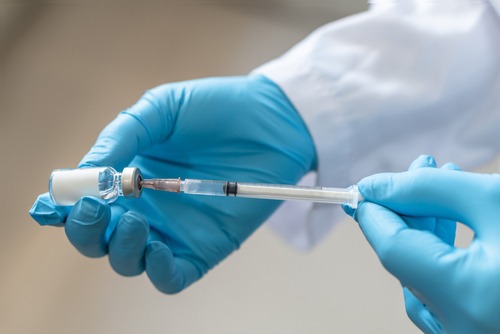
A novel mRNA vaccine developed to protect against malaria has demonstrated full defense against the disease in mice, according to the latest research published in npj Vaccines.
Developed by joint efforts from Walter Reed Army Institute of Research (WRAIR), the Naval Medical Research Center, the University of Pennsylvania, and Acuitas Therapeutics, the vaccine could mark an age-old goal for scientists. Malaria has been notoriously tricky for the scientific community, and while advances have been made over the years, no licensed vaccine for the disease exists.
“Recent successes with vaccines against COVID-19 highlight the advantages of mRNA-based platforms–notably highly targeted design, flexible and rapid manufacturing and ability to promote strong immune responses in a manner not yet explored,” Dr. Evelina Angov, a researcher at WRAIR’s Malaria Biologics Branch and senior author on the paper, said. “Our goal is to translate those advances to a safe, effective vaccine against malaria.”
The need for such a vaccine is high. In 2019, there were an estimated 229 million cases of malaria worldwide, leading to 409,000 deaths. Pregnant women, children, and travelers have been the most susceptible to its reach, driven largely by the parasite species Plasmodium falciparum. For this reason, it has long been an especial concern for the U.S. military.
“Our vaccine achieved high levels of protection against malaria infection in mice,” Katherine Mallory, lead author on the paper, said. “While more work remains before clinical testing, these results are an encouraging sign that an effective, mRNA-based malaria vaccine is achievable.”
This vaccine is based on another first-generation vaccine, known as RTS,S. RTS,S, although useful, has provided limited sterile efficacy and protection duration against malaria in the field. This second-generation approach utilizes the circumsporozoite protein of P. falciparum — the most dangerous and widespread species of malaria parasite — to elicit an immune response, using mRNA to prompt cells to code for the protein themselves. This triggers a protective response that is also incapable of causing infection.




